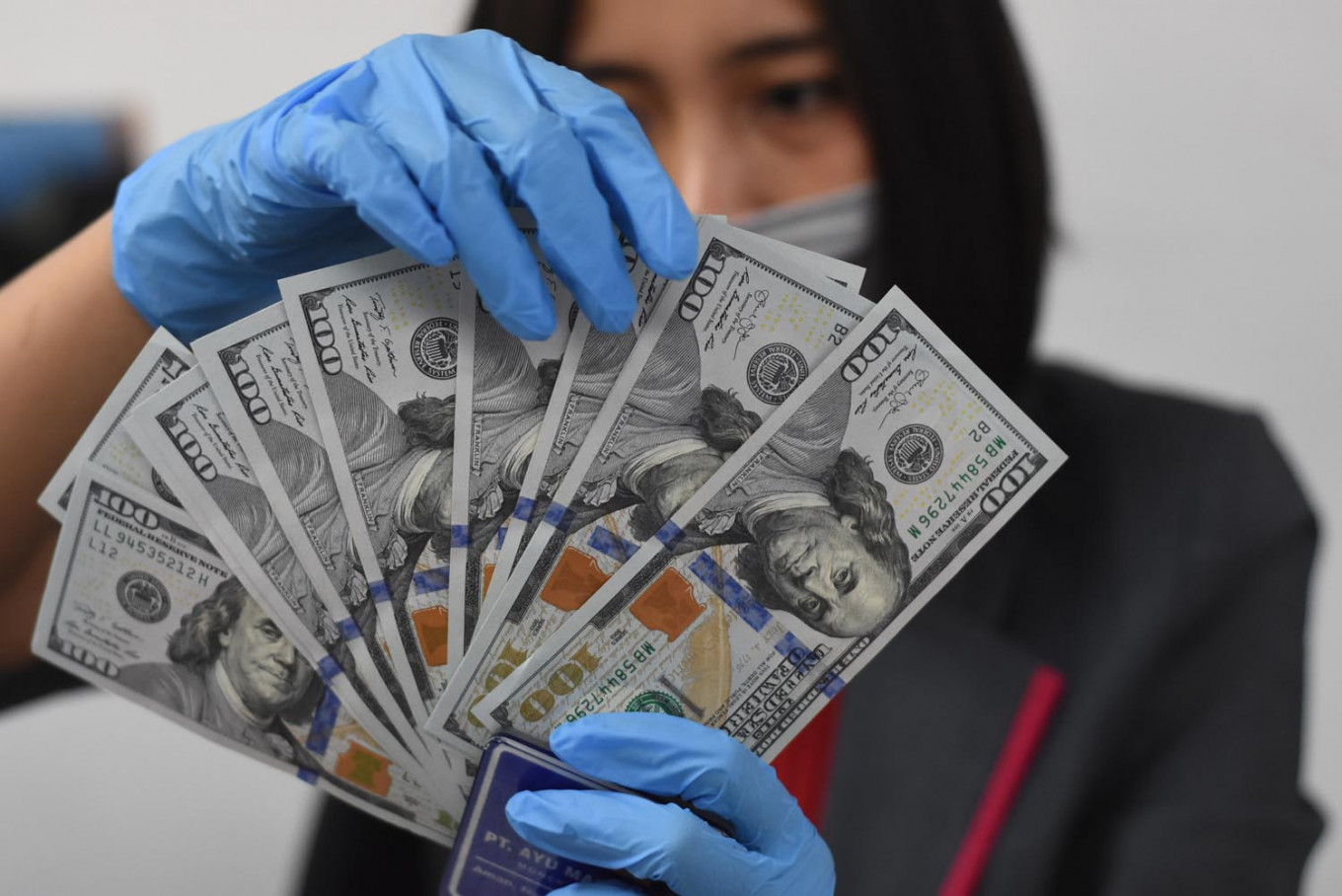Popular Reads
Top Results
Can't find what you're looking for?
View all search resultsPopular Reads
Top Results
Can't find what you're looking for?
View all search resultsIndonesia's new direction toward a modern money market
The newly launched BPPU 2025 from the central bank provides guidance in navigating and managing the development of a modern Indonesian money market.
Change text size
Gift Premium Articles
to Anyone
B
ank Indonesia (BI) launched its 2025 money market development blueprint (BPPU 2025) on Dec. 14 to mark a significant move toward a modern and advanced money market. The launch comes in time with the momentum of economic recovery from the COVID-19 pandemic and the emerging digitalization trend.
Consisting of the rupiah market, the foreign exchange market and their derivative markets, the money market supplies liquidity. A well-developed money market would provide a more efficient alternative funding source for the economy and facilitate risk management for its participants. As a part of the domestic financial system, the money market will enable participants to manage their funding and liquidity. By the same token, the money market has a role in offering short-term investments for up to one year.
The deeper financial markets grow, the more efficient that funding of the economy will become as a whole. Market deepening is also important for policymakers because deeper financial markets give more leeway for more effective transmission of monetary, fiscal and financial stability policies. The economic impact of policies is greater the deeper financial markets become.
The well-known British journalist and economist Walter Bagehot once said that “money will not manage itself”, but instead relies heavily on the market of money for its management. In today’s world, the money market is rising in importance in line with Indonesia’s efforts to escape the “middle-income trap”. Market deepening is mostly about increasing the ease of accessing liquidity for both issuers and investors, but we can see that Indonesia’s money market is not yet deep enough to support its journey to becoming an advanced economy. Meanwhile, finance is also evolving.
The repurchase agreement (repo) is one of the most significant breakthroughs in the modern money market. The repo heralded the modern monetary era and functions as a base asset to support credit expansion, thereby generating more liquidity in the market. The frequency of derivative trading is also rising, despite its downward trend in transaction volume as a result of the COVID-19 pandemic. The global effort to reform financial systems following the 2008 financial crisis is still ongoing, largely in strengthening regulations and market infrastructures, as well as in mitigating systemic risks.
The inherent market risks will increase along with a deeper and more advanced money market. Markets provide socioeconomic benefits by facilitating high investment, yet are vulnerable to dysfunction. The digitalization trend has also prompted demand for the digital money market, which needs addressing.
A blueprint is thus undoubtedly needed to respond to the dynamics and the evolution of the money market. The money market requires reliable infrastructure, a vast array of instruments and products, high market integrity and a well-informed investor base. Policy initiatives and strategy implementations must be formally framed to ensure the consistent development of a deep, liquid, safe and stable money market.
The BPPU 2025 is a stronger evidentiary statement for the journey toward market deepening. It enables the central bank to navigate all market participants so they have the same perspective on what must be done to develop a modern and advanced money market. The blueprint contains clearer directions on strengthening market infrastructure and the variety of the instruments. The BPPU 2025 also facilitates cross-sector regulatory alignment, which will help create a more conducive market environment.
The BPPU 2025 fosters money market deepening in the digital era, bridging the development of the money market with digital payment systems in accordance with to the 2025 blueprint on Indonesian payment systems (SPI). Investment fees, incomes and other related payments will soon be integrated with more advanced digital payment methods, and in turn will accelerate the establishment of Indonesia’s digital economy and finance ecosystem.
As digitalization has emerged, automation has become more popular in finance. Algorithmic trading is trending and becoming more ubiquitous through automated trading systems. The use of artificial intelligence and machine learning increases the capacity of the market to digest the relevant data in a faster and more efficient way. BI has captured these trending technologies and has thus included market digitalization as a major initiative in the BPPU 2025.
The BPPU 2025 launch is also aligned with BI’s role in the newly appointed 2021 coordinator of the Coordination Forum on Development Financing through the Financial Market (FK-PPPK). Finance Minister Sri Mulyani Indrawati has appointed BI Governor Perry Warjiyo to that position. The coordinator position is to be rotated among the FK-PPPK members at one-year terms each. In subsequent years, the Financial Services Authority (OJK) and the Deposit Insurance Corporation (LPS) will take their turns as the FK-PPPK coordinator.
As coordinator, the central bank is in a better position to implement the BPPU 2025 as a framework for accelerating the development of the money market. The blueprint will function as an important modality to guide BI’s actions in developing the money market in harmony with other financial markets. The BPPU 2025 also serves as a new direction toward a modern and advanced Indonesian money market. This effort needs follow-up through further innovative collaboration between the authorities in the FK-PPPK.
***
The writer is in the legal affairs division at Bank Indonesia. The views expressed are personal.










